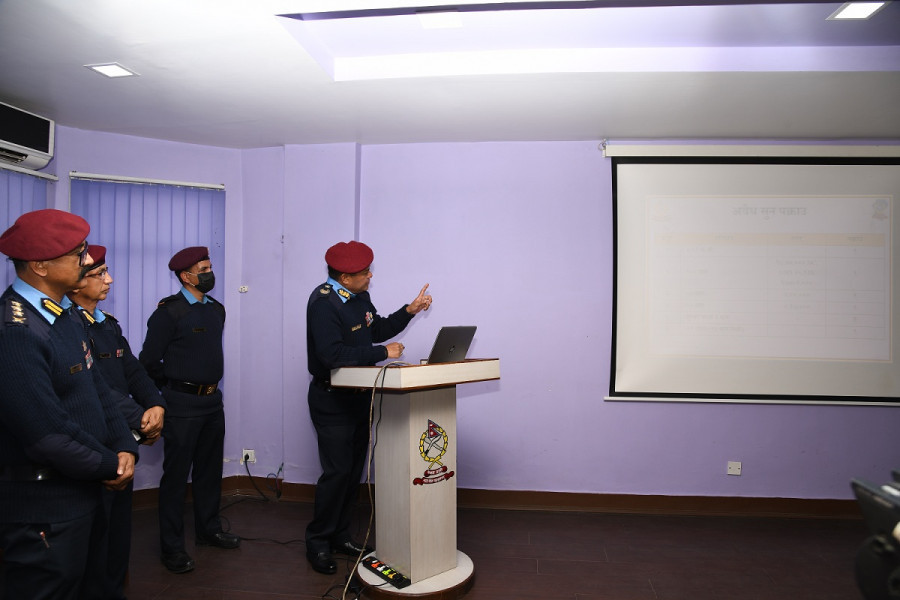Editorial
Guilty until proven innocent?
The practice of making suspects public too quickly is wrong.
Article 11 of the Universal Declaration of Human Rights, which Nepal is a party to, explicitly guarantees the right to the presumption of innocence: Everyone charged with a penal offence has the right to be presumed innocent until proven guilty according to law in a public trial at which he has had all the guarantees necessary for his defense [sic]. The maxim, ‘innocent until proven guilty’, is also a constitutionally guaranteed right and a fundamental principle of the law system and criminal proceedings that also extends to the right to be free from arbitrary arrest and detention, and the right to free speech and privacy that we cannot abandon at any cost.
As the primary civil agency for law enforcement, the Nepal Police is required by law to recognise and protect these fundamental human rights; but bowing to pressure and incompetence of its officers, the institution has repeatedly failed to uphold the law and protect the rights of the people. This is a dangerous trend that the leadership at the Nepal Police must vigilantly intervene by sensitising the police officers about their role in law enforcement and protecting human rights, or it would set an undesired precedent that one is guilty until proven innocent the way things are.
Suspicion alone cannot replace evidence. According to lawyers, making information and photos of suspects public through the media without a court concluding the accused as guilty is a violation of the laws of the land and international treaties endorsed by the country. The law of the land allows the Nepal Police to arrest suspects of a crime without a court order in urgent conditions, but also mandates under Section 17 of the Privacy Act, 2018 that the person detained for investigation shall not be made public in any manner. As a member nation of the United Nations Human Rights Council, the government must ensure that the laws and mechanisms adhere to the various international human rights conventions and are implemented as enshrined in the statute.
Criminal proceedings and the presentation of suspects, thus, desperately need a course correction to safeguard the integrity of the law system, our hard-won freedoms and the dignity of the suspects. The prevalent practice, in which the Nepal Police parades suspects or those charged with petty crimes and releases statements with details of the arrestees, including photographs, must stop. Additionally, the institution must also be wary of the consequences the practice could have on its investigations of the crime and the suspects who could be pronounced innocent and cleared of any wrongdoing by the court. Therefore, it is better to avoid such hasty actions that could backfire and only communicate to the press and public once the investigation is concluded, and the court gives a final verdict.
Despite laws to ensure a fair trial and the presumption of innocence, the Nepal Police tends to violate this basic principle and present the suspects as guilty. Newsrooms, too, add to this frenzy by publishing and broadcasting reports, images and footages, which adds to the problem. Both the Nepal Police and newsrooms must understand that suspects are innocent until proven guilty, and must develop practices in line with ethical standards that adhere to the laws. The practice of making suspects public too quickly is wrong, and it must stop.




 13.12°C Kathmandu
13.12°C Kathmandu














